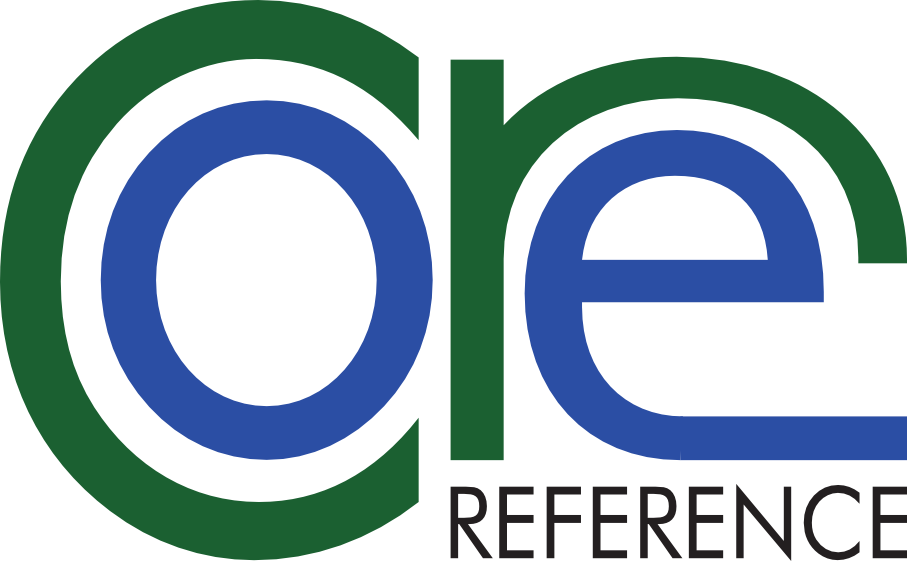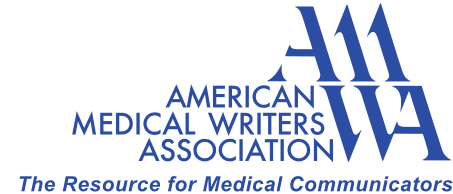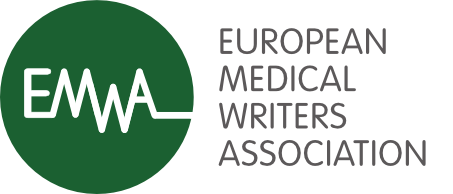August 2024
Medicines and Vaccines
ICH
ICH announced the adoption of ICH E11A guideline (entitled “PaediatricExtrapolation”) on 21 August 2024. The ICH E11A guideline establishes a harmonised framework for extrapolating drug development data from adult trials to paediatric populations, and has reached Step 4 of the ICH process and is ready for regulators to implement in their local jurisdictions. ICH E11A is intended to complement and expand on ICH E11(R1) to provide a more comprehensive framework for the use of paediatric extrapolation in optimising paediatric drug development. ICH E11 (2000) and ICH E11(R1) (2017) should be considered companion guidelines.
CTR and CTIS
- EMA has published the latest CTIS newsflash - 26 July 2024. Updates include: “For an overview of open tasks and required actions, CTIS users are advised to regularly consult the tabs “Tasks” and/or “Requests for Information (RFI)” instead of relying solely on the notices and alerts; During the assessment of a clinical trial application, the timetable may show different due dates/status/information than the actual due dates/status on the Tasks page and RFI page. This does not impact the workflow and the actual due date of the task and RFI.”
- EMA is hosting a CTIS Walk-in Clinic on 18 September 2024 dedicated to answering users’ questions on the transition of trials from the Clinical Trials Directive to the Clinical Trials Regulation. Participants will be able to submit their questions in advance from 18 August to 11 September 2024.
3. EMA has published an updated EU CTIS Sponsor Handbook (v4.0), as well as some of the training modules and FAQs (see Guide to CTIS Training Catalogue, v1.3).
UK and MHRA News
- The HRA has had a busy few months:
- HRA has announced a UK wide alignment with “important changes to our processes”. From 1 August 2024, anyone carrying out research approved by a Research Ethics Committee across the four nations of the UK, no longer needs to submit annual progress reports. There have also been changes relating to what happens when researchers submit a safety report - further information can be found here.
- HRA has published their annual report and accounts for 2023-24. The report also highlights the HRA’s key achievements, including the annual Make it Public week and accompanying free workshop.
- HRA has published a “report about the demographics of our HRA Community” which is made up of members of Research Ethics Committees, the Confidentiality Advisory Group (CAG) and Public Involvement Network. You can read more about the CAG in this blog.
- HRA recently attended a Patient Engagement Open Forum and shared their insights on the work the HRA is doing to “improve diversity in research in Shared Commitment to Public Involvement”.
- The HRA has published “a report that makes a series of recommendations for how to improve clinical research for participants.” This report is a result of the HRA’s People-Centred Clinical Research project and makes 19 recommendations for change “to help people-centred research flourish” (see page 20 of the report).
- The HRA published the Guidance on Pre-submission Advice & Support which outlines a pre-submission service before applying for Medicines Marketing Authorisations. Pre-submission advice provides stakeholders with the means to understand how the process of compiling and submitting applications and supporting evidence applies for their product. It is distinct from MHRAs Scientific Advice offering.
- The UK government has launched a £400 million public-private investment programme to boost clinical trials and support faster NHS patient access to new treatments. The Voluntary Scheme for Branded Medicine Pricing, Access and Growth (VPAG) Investment Programme will also create 18 new clinical trial hubs.
FDA Guidance and News
- FDA and NIH are hosting a webinar titled ‘Regulatory Do’s and Don’ts – Tips from FDA’. It is intended to provide an overview on resources and programs that FDA has developed across CBER, CDER, and CDRH that can help academic life-science accelerators and early-stage, oncology-related companies develop new anticancer-therapeutics, devices, and diagnostics. Date: 04 Sep 2024, Time: 11.00-15.00 ET. Learn more and register here.
2. The FDA adopted the ICH M12 guideline and published final guidance entitled “M12 Drug Interaction Studies” and supplemental document “M12 Drug Interaction Studies: Questions and Answers.” The guidance provides general recommendations on evaluating the enzyme and transporter-mediated PK drug-drug interaction potential for investigational drugs. The supplemental Q&A document provides further clarity to some concepts covered in the guidance. The intention is to harmonise the regional recommendations for designing, conducting, and interpreting in vitro and clinical evaluations of drug-drug interactions while developing investigational drugs.
- From 28 August 2024, PRS Beta is now the primary website for protocol registration. For more information on the new features of the Modernised PRS (PRS Beta) and how it will work seamlessly with Classic PRS, read the latest NLM Technical Bulletin and the latest Release Notes. There are also a series of short videos available from Fast Forward from ClinicalTrials.gov describing how to complete tasks on the modernised ClinicalTrials.gov and in the PRS.
- The FDA has released guidance with recommendations to sponsors regarding the submission of an initial paediatric study plan (iPSP) and any amendments to the iPSP. The guidance document includes a template that is recommended to be used for an iPSP submission.
- FDA’s Center for Drug Evaluation and Research (CDER) Center for Clinical Trial Innovation (C3TI) is a central hub that supports innovative approaches to clinical trials that are designed to improve the efficiency of drug development. Check out the latest FAQs.
- The FDA has released the final guidance on Product-Specific Guidance Meetings Between FDA and ANDA Applicants Under GDUFA (Generic Drug User Fee Amendments).
EMA Guidance and News
- The EMA has launched the HMA Pilot Education Program Oncology on YouTube. The playlist comprises 10 videos covering various topics, including regulatory procedures, scientific advice, companion diagnostics, and case studies.
2. EMA has updated its guidelines on good pharmacovigilance practice with new information on risk-minimization measures and updated definitions. EMA has new text that gives slightly different definitions for adverse events in trials and in the real world. Other changes include the addition of definitions of disease registry, immunisation, stress-related response and primary data collection. Introductory cover note, provides further details of updates.
- The EMA is delivering a Product Management Service (PMS) and a Substance Management Service (SMS) to support regulatory activities in the EU. The PMS and SMS will manage two of the four domains of substance, product, organisation and referentials (SPOR) master data in pharmaceutical regulatory processes. SPOR data management services will facilitate the reliable exchange of medicinal product information in a robust and consistent manner. An FAQ on the PMS is available here.
4. Multi-Factor Authentication (MFA) is now active when logging into EudraCT. To access the website, users should log in to EudraCT using their EMA username followed by ‘@id.ema.europa.eu’ and password, and proceed through the steps to set up their MFA. Instructions can be found here. As a result of the MFA, users are no longer required to ask for a ‘results user role’, but can directly request the primary user assignment of trials to post results for their trials.
Real-World Data
- Second EMA report on real-world evidence studies to support medicine regulation. A total of 40 studies were conducted between February 2023 and February 2024.
- The DARWIN EU network expanded from 10 to 20 data partners since 2023, allowing access to data from almost 130 million patients from 13 European countries - in full compliance with data protection legislation. Read EMA’s Executive Director Emer Cooke’s summary (you need to be signed into LinkedIn).
- The EMA has released the “ICH reflection paper on pursuing opportunities for harmonisation in using real-world data to generate real-world evidence, with a focus on effectiveness of medicines” (dated 25 July 2024), a paper which was adopted by the CHMP last month.
- This recent review by Alipour-Haris et al provides a comprehensive assessment of 85 regulatory use cases that incorporated RWE, offering critical insights into its growing significance in the approval of new treatments, especially in oncology.
5. FDA aims to answer questions received from the public on Real-World Data and Evidence Generation with Dr Hilary Marston in a “Q&A with FDA”. Dr Marston is FDA’s Chief Medical Officer and primary clinical advisor to the FDA Commissioner Dr Robert Califf. The Q&A will discuss real-world evidence, real-world data, and how FDA continues to advance clinical trials and promote reliable evidence to support the safety and effectiveness of medical products, including drug products. Listen now to learn more.
Transparency and Disclosure Resources and News
- The Swiss authorities have made revisions to the HRA and the four Ordinances to align with the EU Clinical Trials Regulation (Reg. (EU) No. 536/2014) and adopted them on 7 June 2024. Revisions include harmonising requirements for transparency in clinical trials with international regulations. A summary of results must be published and all published information must be made available in the national languages relevant to the trial. The duty to publish the summary of results within one year of completing a clinical trial applies from 1 March 2025 for all trials completed after 1 March 2025. It does not apply to trials completed before 1 March 2025. Further information on the new requirements and the transitional regulations will be published on the Swissmedic and Swissethics websites in due course.
- Registration is open for the PHUSE Data Transparency Autumn Event 2024. The programme will take place virtually from 17–19 September 2024 and is free to attend. Topics range from cutting-edge approaches in autonomous security and transparent data sharing to the latest advancements in AI-driven data protection and clinical documentation. The full agenda can be found here.
3. The European Data Protection Supervisor (EDPS) and the the Data Protection Authority of Spain (AEPD) have published a joint paper on 10 misunderstandings related to anonymisation. This document lists ten misunderstandings, explains the facts and provides references for further reading. The objective is to raise awareness about some misunderstandings around anonymisation, and to encourage an examination of certain assertions rather than accepting them without verification.
Development Strategy News
1. This FDA letter reinforces the criticality of quality/appropriate data to support a claim and explains why this particular data did not reach that threshold. It clarifies that while disclaimers/disclosures/limitations are clearly helpful and required in certain circumstances, they do not mitigate the requirement for appropriately sound data, which otherwise might make the presentation as a whole misleading. The letter addresses such challenges as potential limitations of pooled data, single arm trials, and post hoc analyses, among others. Additionally, it reminds us that the regulations state that it is misleading to include in promotional materials representations or suggestions that rely on a study or studies whose design is not capable of supporting such representations or suggestions. This is essential reading for all disciplines involved in the creation and/or review of commercial programmes and materials, as well as those who design clinical trials. [Credit, Lucy Rose on LinkedIn]
- The paper by Huang and Parikh Towards Generalizing Inferences from Trials to Target Populations reviews transportability and generalisability of data and inferences from clinical research to clinical practice.
3. Daher and Vilimelis-Piulats have published a review of EU paediatric regulation which examines current status and potential future changes. The authors summarise planned changes for the EU legislation reform and the possibility of alleviating limitations in paediatric drug development.
Artificial Intelligence / Machine Learning
- The US National Institute for Standards and Technology (NIST) released Special Publication 800 on Secure Software Development Practices for Generative AI and Dual-Use Foundation Models. This document augments the secure software development practices and tasks defined in Secure Software Development Framework (SSDF).
- The European Commision AI Office launched a multi-stakeholder consultation on trustworthy general-purpose AI models under the EU AI Act. In addition, everyone is invited to participate in the inclusive and transparent drafting process for the first General-Purpose AI Code of Practice between September 2024 and April 2025. You can express your interest to participate by 25 Aug 2024 here.
- This post by Sepanta Fazaeli on The Double-Edged Sword of AI in Healthcare: Why We Need More Than Just LLMs provides insights on hallucinations of AI models, especially focusing on summarising clinical data.
- UK’s National Institute for Health and Care Excellence (NICE) released the position paper Use of AI in evidence generation: NICE position statement. The statement has been developed through consideration of how AI methods could be applied to all aspects of evidence considered by NICE and covers AI methods that the body is aware have been applied to, or are being researched for health technology assessment-related purposes.
- Kather et al. have published the paper Large Language Models could make Natural Language again the Universal Interface of Healthcare which covers the use of LLMs on simplifying medical documentation and communication.
- The article by Lenharo on The Testing of AI in Medicine is a Mess. Here’s How it Should be Done reviews the current state of AI applications in healthcare and highlights the gap between algorithm development and clinical validation and the urgent need for standardised and rigorous testing protocols.
- Freyer et al. have published A Future Role for Health Applications of Large Language Models Depends on Regulators Enforcing Safety Standards. The paper highlights regulatory ambiguity and the risks for health-care applications that serve a medical purpose (hence should be regulated as medical devices).
- The European Commission has released the report Cyber security in the health and medicine sector: a study on available evidence of patient health consequences resulting from cyber incidents in healthcare settings. The study researched cyber incidents in the EU with potential health impacts such as postponed therapies, and delayed surgeries and identified some cyber vulnerabilities.
- The European Data Protection Supervisor (EDPS) and the University of Karlstad are hosting an Internet Privacy Engineering Network (IPEN) event on "Human supervision of automated decisions" on 3 September 2024. The agenda and registration details are here.
News from Asia Regulators
- In June 2024, Japan PMDA released an administrative notice on “Considerations for the Utilisation of Master Protocol Trials in Drug Development”. The notice includes information on the scope of master protocols, setting up master protocol trials, preparation of regulatory documents, and relevant communication with PMDA.
- As of 15 July 2024, the Chinese Clinical Trial Registry (ChiCTR) will no longer accept registrations for clinical trials involving traditional medicines (includes traditional medicine practices such as Chinese medicine, acupuncture, massage, herbal medicine, Ayurveda, homeopathy, Yunani, complementary and supplementary medicines, etc).
Medical Devices
This subsection covers transparency in relation to medical devices, and the emerging intersection of the regulatory medical devices and the regulatory drugs spaces. Devices information or regulations that impact the reporting of device studies are also covered. Contextualisation is provided, where possible, to help readers understand how the information could be used.
General Updates and News
1. Participate in the AAMI Survey on IMDRF Essential Principles. The International Medical Device Regulators Forum (IMDRF) released the Essential Principles of Safety and Performance of Medical Devices and IVD Medical Devices to harmonise global standards, ensuring safety and performance across borders. Adopting these principles globally can reduce regulatory discrepancies, cut compliance costs, and speed up patient access to innovative technologies and treatments. Survey link here.
2. EMA has launched a pilot programme for expert panels to support the development and assessment of orphan medical devices in the EU. It will offer free advice from the medical device expert panels to selected manufacturers and notified bodies on the orphan device status and the data needed for their clinical evaluation. While scheduled to run until the end of 2025, the aim is to establish a long-term process for orphan device support. It will run in parallel to the scientific advice pilot to manufacturers which already prioritised advice to manufacturers on the clinical development strategy and clinical investigations of devices addressing unmet needs. EMA will hold an online information session on the pilot for expert panels' advice for orphan medical devices on 24 Sep 2024; registration details here.
- The European Commission has launched a Survey on Electronic Instructions For Use (eIFUs) for professional use medical devices (i.e. devices that are used by healthcare professionals). This survey is available in all EU languages.
- Australia’s Therapeutic Goods Administration (TGA) has updated information and forms for applications for TGA conformity assessments for medical devices. TGA’s conformity process closely follows EU certification.
- The Notified Body BSI released a guiding document MDR Conformity Assessment Routes aimed to help identify the most suitable assessment route for medical devices according to classification.
- The EU Competent Authorities (CAMD) have published a consensus statement on the EU regulatory framework for medical devices and IVD. This statement outlines common priorities for future actions to implement and current challenges to overcome.
- The FDA Center for Devices and Radiological Health (CDRH) has released a discussion paper Health Equity For Medical Devices for public input. This initiative aims to drive innovation that reduces barriers to health equity and improves outcomes across diverse populations. Stakeholders are encouraged to provide comments by 4 Oct 2024.
- The FDA has released the final guidance on Electronic Submission Template for Medical Device De Novo Requests. This submission type is required as of 1 Oct 2025.
- Health Canada has updated its guidance on Using Standards to Support Compliance with the Medical Devices Regulations.
10. TGA Australia has released Medical Devices – Essential Principles for Safety and Performance Part 2: Proposed alignment with the European Regulations for consultation.
EU Transparency
EUDAMED News
- The European Database for Medical Device (EUDAMED) is the centralised database developed by the European Commission for the transparent management of medical devices and IVDs. EUDAMED has updated its user guide, which provides detailed instructions on how to use the system, including a Playground environment designed for users to test the platform.


